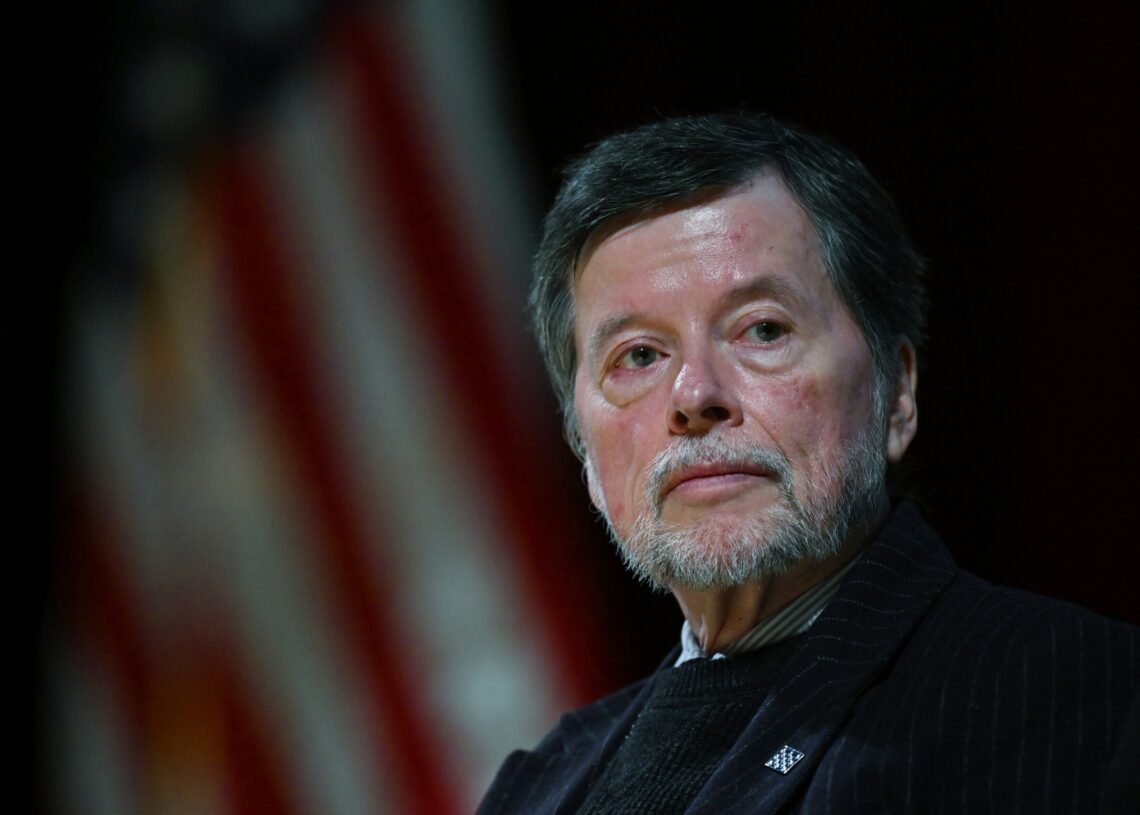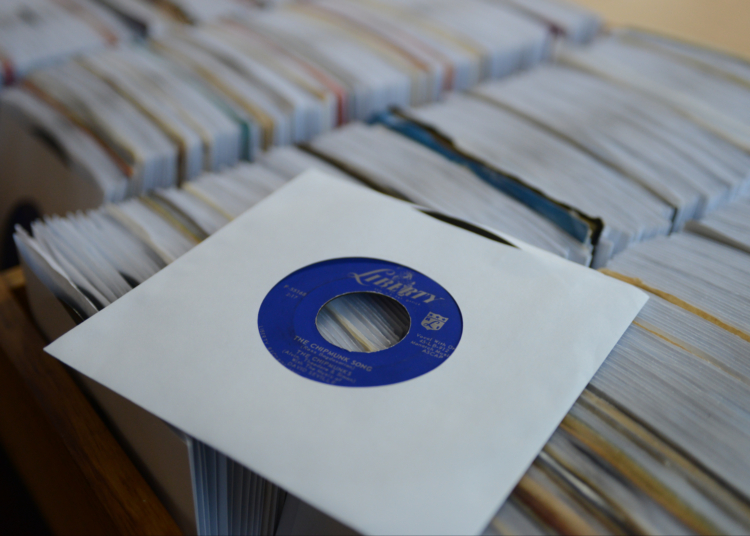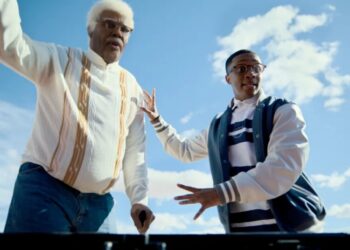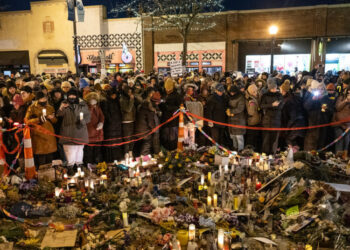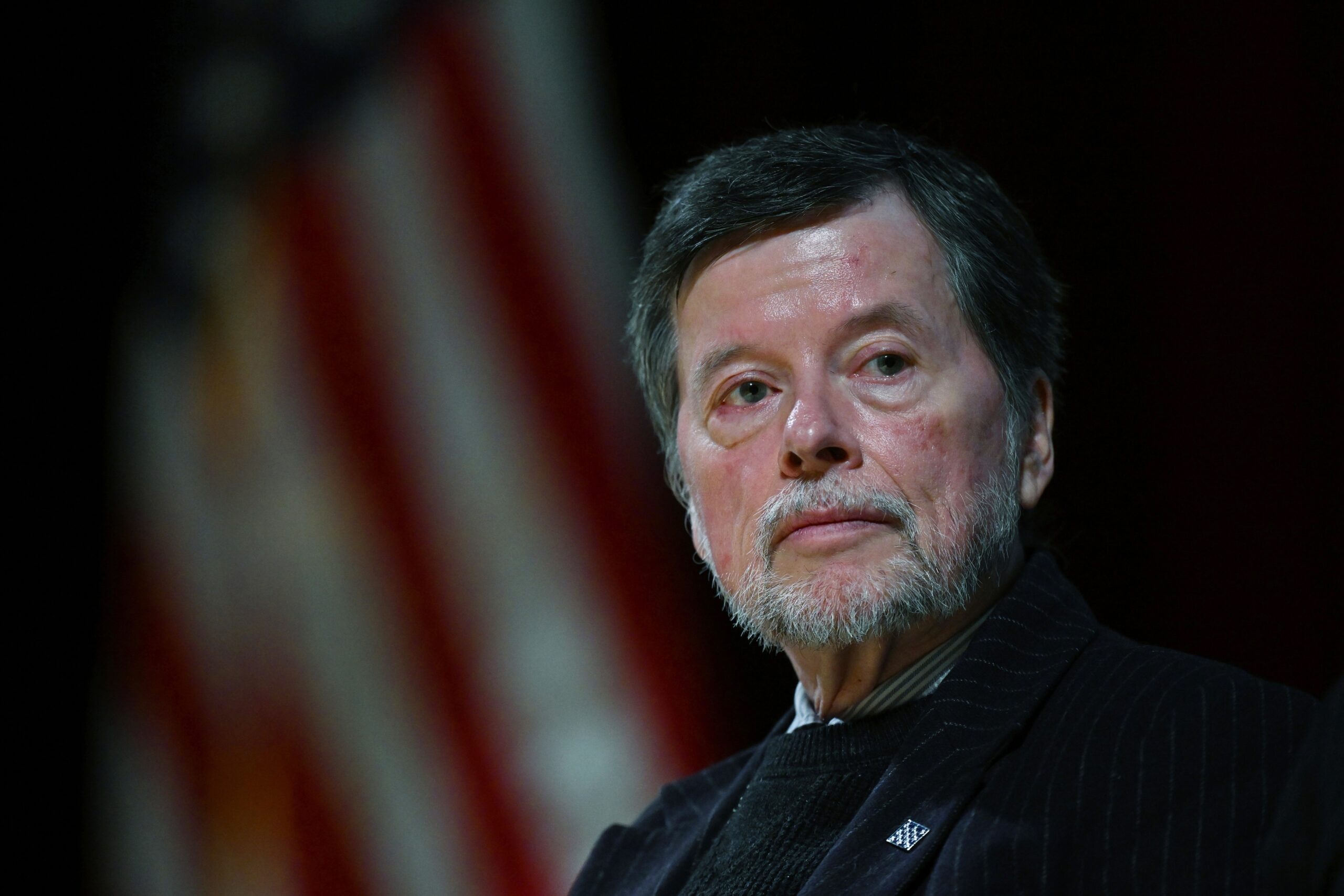
There’s a neon sign in Ken Burns’s editing room that reads, “It’s complicated.” Even the prolific documentarian, who spends more time than most exploring the difficult truths of our nation’s history, needs the reminder every so often. While Burns and co-directors Sarah Botstein and David Schmidt were working on his latest PBS docuseries, “The American Revolution,” the sign encouraged them to question the narratives they had been taught since childhood about the war.
There’s a neon sign in Ken Burns’s editing room that reads, “It’s complicated.” Even the prolific documentarian, who spends more time than most exploring the difficult truths of our nation’s history, needs the reminder every so often. While Burns and co-directors Sarah Botstein and David Schmidt were working on his latest PBS docuseries, “The American Revolution,” the sign encouraged them to question the narratives they had been taught since childhood about the war.
“It’s a really complex, layered event,” Burns said in October. “It’s the most consequential revolution in history and sponsors revolutions that will take place for more than 200 years in Europe and the Caribbean, South America, and Asia and Africa. It’s about really, really big ideas. But it’s also a civil war — a bloody one at that — and a world war.”
Fans of Burns’s work won’t be surprised to learn that “The American Revolution,” which premieres Sunday, spans 12 hours (divided into six feature-length episodes). This expansive running time allowed the team — which includes frequent Burns collaborator Geoffrey C. Ward, who wrote the series — to devote a significant amount of attention to individuals often overlooked by historical retellings, such as women, enslaved people and Indigenous communities. The war of independence may have been waged by White men, but its reverberations reached everyone.
Burns began his research in December 2015, a month before the Iowa caucuses, “out of which certain politicians were not supposed to emerge,” he said. He didn’t plan to release the series on the eve of America’s 250th anniversary; that is simply when his team finished postproduction. But the timing remains significant, nonetheless — many consider the country in a state of crisis.
The filmmaker spoke to The Washington Post during what soon became the longest government shutdown in U.S. history. The production received funding from WETA, the PBS affiliate in the Washington area affected by the dismantling of the Corporation for Public Broadcasting. Burns referred to the funding cuts as “a murder,” stating that they “disproportionately affect the rural stations.”
Still, Burns finds cause for optimism: “To be optimistic is not to be unrealistic,” he said. “It’s just to understand that I’ve seen this before.” Botstein added in a separate interview that the series highlights how history can be both “instructional and inspirational.”
“We have a long history filled with all kinds of bruises and things that we needed to do better, and still can do better,” she said. “But there’s an awful lot to celebrate, too.”
Burns and his co-directors have spent a significant portion of the year on the road, hosting conversations about “The American Revolution” in more than two dozen U.S. cities. They plan to continue touring in 2026. The “best response” they tend to receive, according to Burns, comes from audience members who realize they don’t know as much as they thought they did about the motivations behind the war.
“You pass your test in grade school if you say ‘taxes and representation,’” he said. “And that’s absolutely true. But what comes before that is land. It’s all about land.”
The series opens with narrator Peter Coyote reciting from Thomas Paine’s “Rights of Man,” which describes how the American Revolution inspired people across the globe to fight for their freedoms. Then, an actor reads a quote by Canassatego, a spokesman for the Iroquois Confederacy, acknowledging that “the White people” underestimated the Haudenosaunee people’s understanding of how much value their land possessed.
This juxtaposition sets the stage for the following 12 hours. In one breath, viewers might find themselves in awe of the Founding Fathers and their sophisticated proposals for a brand-new government. And in the next, they might be disgusted by how the building of one nation relied on the destruction of those that came before it.
The filmmakers consulted with dozens of experts, many of whom appear in the series. Midway through the first episode, Maggie Blackhawk, a legal scholar at New York University, comments on the way several maps from the early colonial period depict the colonies extending well into the interior of the continent. Maps are aspirational, she says as the camera zooms out and pans across one such illustration (a technique known as the Ken Burns effect). “They’re an argument rather than a conclusion.”
Unlike “The Vietnam War,” the 2017 docuseries Burns co-directed with Lynn Novick, the latest production couldn’t use photographs or newsreels. The team commissioned artwork, included illustrations and paintings from the period, and filmed reenactors to represent the events. “We never stop researching, we never stop writing, we never stop shooting,” Burns said.
They figured it out as they went, not unlike the colonists. While the series leads up to American independence, it makes abundantly clear that this was not always the goal. In April 1775, “the fight was about liberating Boston, getting a redress of grievances and restoring things to the way they had been when we were all happy under the British Empire,” co-director Schmidt said. A full year passed before Thomas Jefferson wrote the Declaration of Independence, sending the conflict down a different path.
“It’s the course of the war that makes those objectives,” Schmidt said.
Botstein called attention to the same timeline, noting that “most people don’t realize how much time there is from the Declaration of Independence to the Constitution, to the amendments, to the ratification, to a formation of government.” The series dissects the intervening years, which she considers a “helpful” reminder of the fact that change can take a long time. The founders debated, she said. “They were not a monolith.”
“It’s a lot more complicated than that,” Botstein said. We were founded in a moment of division. People were loyalists for very understandable reasons. Different populations chose different sides. Families broke apart. And we’ve [likewise] been fairly divided at every big anniversary of the American Revolution. There’s something to learn from that.”
If you were to take only one thing away from “The American Revolution,” it should be that the war we so often think of as between two countries, the United States and Britain, was technically a civil war. Colonists who sided with the British lived alongside the patriots; Benjamin Franklin’s son William was a royal governor who supported the crown. History has painted loyalists as villains, but after conducting years of research, Burns finds their position “very understandable.”
“The British constitutional monarchy was the best form of government to date,” he said. “You can ask yourself … why would I risk everything for this gamble?”
Some of Burns’s work, such as his 1990 docuseries “The Civil War,” has been criticized for romanticizing history by adopting a reconciliatory tone. But the filmmaker views his team as “umpires calling balls and strikes,” he said. “You are required to be as objective as you can possibly be.” Context is everything. Schmidt, noting that the series premieres the week before Thanksgiving, hopes it can be something that families “can break bread over.”
“I don’t think the history we’re presenting is particularly divisive,” he said. “I don’t think people are going to say, ‘That’s a lie.’ They’re going to say, ‘I didn’t know that.’”
To this end, Burns has spoken to a vast array of media personalities while promoting the series. In June, he appeared on a three-hour episode of “The Joe Rogan Experience.” In October, he spoke to both comedian Theo Von and “Fresh Air” host Terry Gross.
“I’ve been insistent with myself that I say the same things to Joe Rogan as I said to the editorial board of the New York Times as I said to kids in Chicago,” he said.
When he does feel like stirring the pot, he tells people attending his tour stops that the Revolutionary War “was the most important event in world history since the birth of Christ.” Most of the time, he can successfully argue against rebuttals. Then one person brought up the printing press, which Burns thought was “really legitimate.”
The Declaration of Independence deemed “life, liberty and the pursuit of happiness” to be inalienable rights. Burns’s argument hinges on the notion that “we were the first government to put these ideas into motion,” he said. Of course, they applied only to White men at first. Then the Gettysburg Address expanded the government’s interpretation of “All men are created equal” to include enslaved people. The 15th Amendment granted suffrage to Black men, and then the 19th did for women.
The United States is constantly evolving. Burns believes “the pursuit of happiness” refers not to the acquisition of wealth or pleasure but rather to “lifelong learning.”
“That’s the thing,” he said. “We’re a nation in the process of becoming. So knowing about your history helps people make choices about what they want to become.”
The post Ken Burns says Americans have been fighting each other since the beginning
appeared first on Washington Post.
